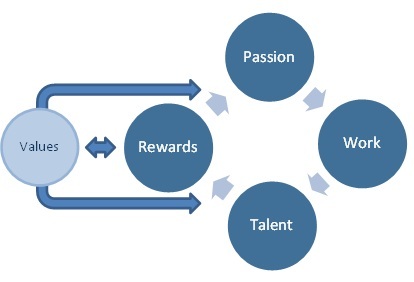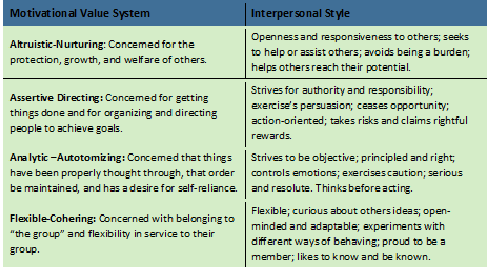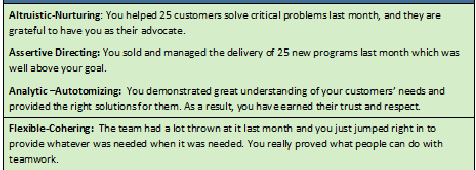… teams as well as couples have a list of undiscussables, issues they avoid broaching at all costs in order to preserve a modicum of peace, to preserve the relationship. In reality, the relationship steadily deteriorates for lack of the very conversation they so carefully avoid. It’s difficult to raise the level if the slide has lasted over a period of years, and that is what keeps many of us stuck. —–Susan Scott, in Fierce Conversations
As long as I can remember, I have always been struck by the lack of honesty in conversations. It seems futile to me. Why talk, why relate if you won’t be honest with each other? People walk around constructing fictional stories about what is happening. Instead of putting ourselves out there, we place our mannequin selves in the world to talk with others’ less than life-size dolls. A young man tells his soon to be ex-girlfriend, “It’s not you, it’s me.”A boss tells the employee, “You didn’t get the promotion because the other candidate was just more qualified.” And a woman tells the waiter “Everything is fine.” It’s fiction; it’s deceit, and it’s destructive to people and relationships. It prohibits us from living the honest, connected lives we all yearn for. It blocks growth in organizations.
On occasion, the audience buys your fictional story. More often than not, deep down he/she knows that it’s a tale, and another insipid story is constructed. The story says “I can’t trust what people say, people don’t believe in me enough to be honest with me, there is something wrong with me, I can’t get a fair shake.” And in return they give you more fiction. Reality is lost. Mistrust is gained.
Maybe you’re thinking, “Well, you can’t always be honest with people. It’s often better to shade the truth or leave things undisclosed.” To that, I say two things:
- You have obviously been told a lot of stories – and told a few yourself.
- How’s that working for you?
Six years after hiring a narcissistic, insecure manager who wreaked havoc on the company, a vice president asked an exiting employee for advice: “What do I do with this manager? She berates me and is despised all over the company. I was hoping her peers would deal with her.”After six years, one-hundred percent turnover, and immeasurable damage to the organization, the VP was still unwilling to have an honest conversation with herself, with the manager, and with numerous people throughout the organization.One year later the manager was fired. Why? What took so long?The longer the tale, the harder it is to look up to face reality.
Handle the Truth
Who can forget how the infuriated Colonel Jessep pompously screams “YOU CAN’T HANDLE THE TRUTH” at Lieutenant Daniel Kaffee in the movie, A Few Good Men. I believe this line resonates with so many of us not only because it is Kaffee’s triumphant moment, but also because at some level we believe it. People simply can’t handle the truth.
You must handle the truth – that is the truth. It would seem obvious but it seems not be.Top-selling books, Good to Great, Fierce Conversations, and Integrity all feature facing the truth as a central component of personal and business success.Why does it need to be said?Because it is a habit that is so uncommon in our world, that’s why.
A few weeks ago I attended a training program. During the first evening of training, one facilitator dominated the dialogue. He talked over his counterpart and crowded out any room for participant engagement.My initial reaction was to withdraw and, honestly, to dislike the man.Despite myself, I resolved to speak truth. The next morning before class I caught-up with the facilitator and gave him some straight feedback. Guess what he did.He handled the truth; no he embraced it and thanked me for caring about him!There in that conversation, a relationship was reborn.I left it liking him and him liking me. The rest of the workshop went very well.I, and about twenty other people, re-engaged in the workshop because we handled the truth.That conversation cost me nothing, salvaged the $18,000 expense for the course, and is producing a tremendous return on the investment.
Now, as I sit here recounting this story, I feel incredibly gratified because that is what I do for a living. I help people have honest truthful conversations with themselves, with their teams, and with their stakeholders and customers.As a result, they can make effective decisions and move forward together honestly and productively.
That is pretty cool.

 Sometimes it can be difficult to “peg” a person with a Flexible-Cohering MVS since they are so adaptable, doing whatever is needed at the time. “Blends” also can be difficult to identify because they show elements of two different core value systems. I know a man who, when he behaved very assertively, was asked “what happened to the kind, nurturing person I met a few weeks ago?” But his behavior was entirely consistent with his MVS, which is the Assertive-Nurturing blend. It was his passion to serve people that led him to stand-up for their needs in a direct and candid manner.
Sometimes it can be difficult to “peg” a person with a Flexible-Cohering MVS since they are so adaptable, doing whatever is needed at the time. “Blends” also can be difficult to identify because they show elements of two different core value systems. I know a man who, when he behaved very assertively, was asked “what happened to the kind, nurturing person I met a few weeks ago?” But his behavior was entirely consistent with his MVS, which is the Assertive-Nurturing blend. It was his passion to serve people that led him to stand-up for their needs in a direct and candid manner.
